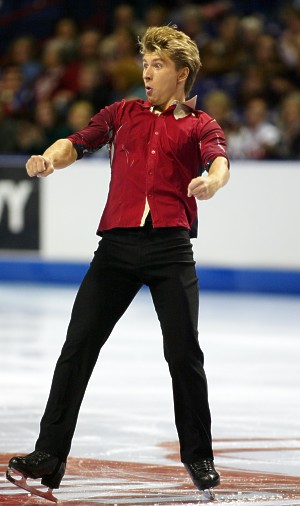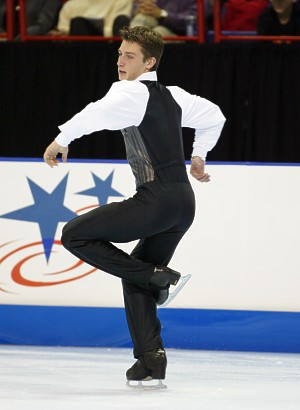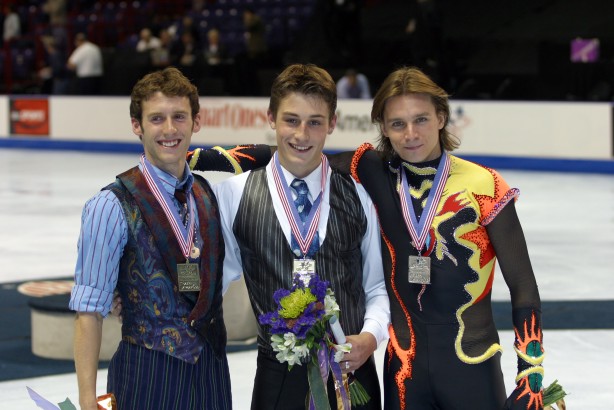|
Skating first in the event, Yagudin landed an opening quad toe - triple toe combination and a nice triple Axel, but popped a triple Lutz to a double for a major deduction. Joubert, who skated next to last, landed a quad toe - double toe combination, the triple Axel, and the triple Lutz. Both skaters gave strong performances. Judging by the audience response, Joubert's program - a weird affair skated to music from Pink Floyd - was the favorite of the audience, and received a standing ovation; but it was Yagudin's Techno routine that received the higher second marks from the panel to overcome his defect in the first mark. Yagudin has been battling hip pain and has missed some practice time in recent days. He has a congenital problem with his hip joints in which an under-sized hip socket causes excessive wear and injury to the joint. He is faced with the unpleasant choices of surgery which may end his career, skating with the pain for as long as the joint will hold out, or retirement. At this point he is following the second course of action and getting what therapy short of surgery that he can. Third in the short was Alexander Abt who also opened with a successful quad toe - triple toe combination. He also attempted triple Axel and triple Lutz, falling on the triple Axel - which Yagudin, who was watching in the audience, responded to by pumping his fist in satisfaction. Other than the fall, he skated a strong program that was well presented. From the look of the marks, his placement may also have been a split decision and may have been affected by the random draw of judges - but that too remains an ISU state-secret. Michael Weiss had a mediocre skate, making two serious errors, two-footing a quad toe loop in his opening quad toe - double toe combination, and two footing triple Axel. The second American in the event, Matthew Savoie skated a simpler program that the top men and had a step out of the triple Axel. His presentation was mediocre, the only highlights being his spin elements, which were well done. Placing in the bottom third, Derrick Delmore landed a quad toe - double toe combination and a triple Lutz, but popped a triple Axel to a single. He skated with decent speed but it was a lackluster performance which he paid for in both marks. Canadian Emanuel Sandhu, skated a bizarre program in a bizarre costume (described by one colleague as a "gay Heide" costume) attempted a difficult program and self-destructed as usual. |
||||||||||||||||||||||||||||||||||||||||


